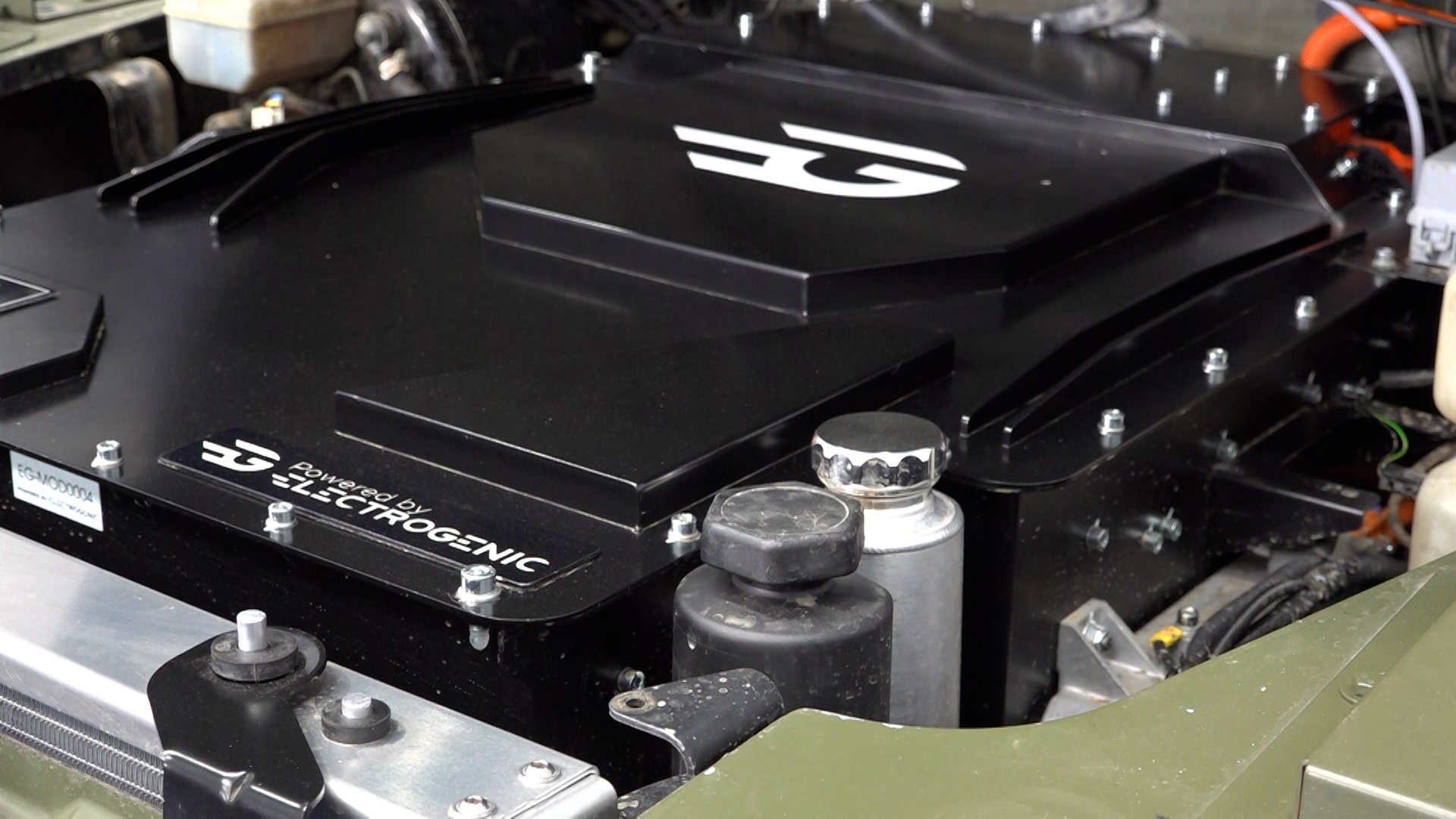Army could be new silent service as it develops tactically quieter electric vehicles
The Army's electrification of vehicles as part of Project Lurcher is designed to lower the carbon footprint of the service.
However, the project's technical lead says the operational benefits are the primary motivation.
Land Rovers are commonly seen where the British Army travels or camps, and reducing their noise and heat signature was key for Corporal Bryan Munce from the Armoured Trials and Development Unit.
- Heavy-lift drones: With no human lives at risk, could they replace the helicopter?
- Arctic drift: Learning how to drive a BV 206 tracked transporter on the snow and ice in Norway
- Play more video games forces personnel told, as MOD recognises benefits of eSports
Following lessons on operations, he made an impromptu pitch to his seniors, to transition parts of the fleet to electric motors.

He told Forces News: "Primarily, it's all about the actual performance benefits."
Straight line speed, safety travelling downhill, reduced thermal and acoustic signatures and increased exportable power to unlock "novel mission systems" are all being examined as benefits over combustion engine use.
He spoke outside a hangar at a defence Battlelab in Dorset, where the MOD announced a partnership with McLaren to gain engineering expertise and learn from the F1 giant's ability to transition to electric power.
"We've just driven out of the hangar and it was nearly silent," Cpl Munce said – referring to the absence of stealth in Afghanistan, where even a quad bike engine would wake local dogs in the still of night.
Lowering thermal signatures could also delay detection from enemy drones.
"As the modern battlefield is soaked with sensors," he said, adding that electric propulsion being trialled could offer greater stealth advantages.
Vehicle mechanic Lance Corporal Natasha Brazier said the move will "be a good learning opportunity" that will sharpen the skills of Army engineers.
Transitioning to electric will present fresh challenges for those maintaining, driving and fixing Army vehicles, while engineer training will also align with the times.
Project Lurcher originated with Electrogenic, a company that began creating electric vehicle (EV) technology to extend the life of historic cars, and Babcock International.
Lurcher will enable Army engineers to "get their hands dirty" in a whole new genre of engineering – while partnership with McLaren will help bring race-winning qualities to fight-winning concepts, said Cpl Munce.
Brigadier James Vigne, the head of Army Climate Change and Sustainability, said electric vehicles will be expected on bases "before we get to the frontline", reducing the footprint of the service on a day-to-day basis.









